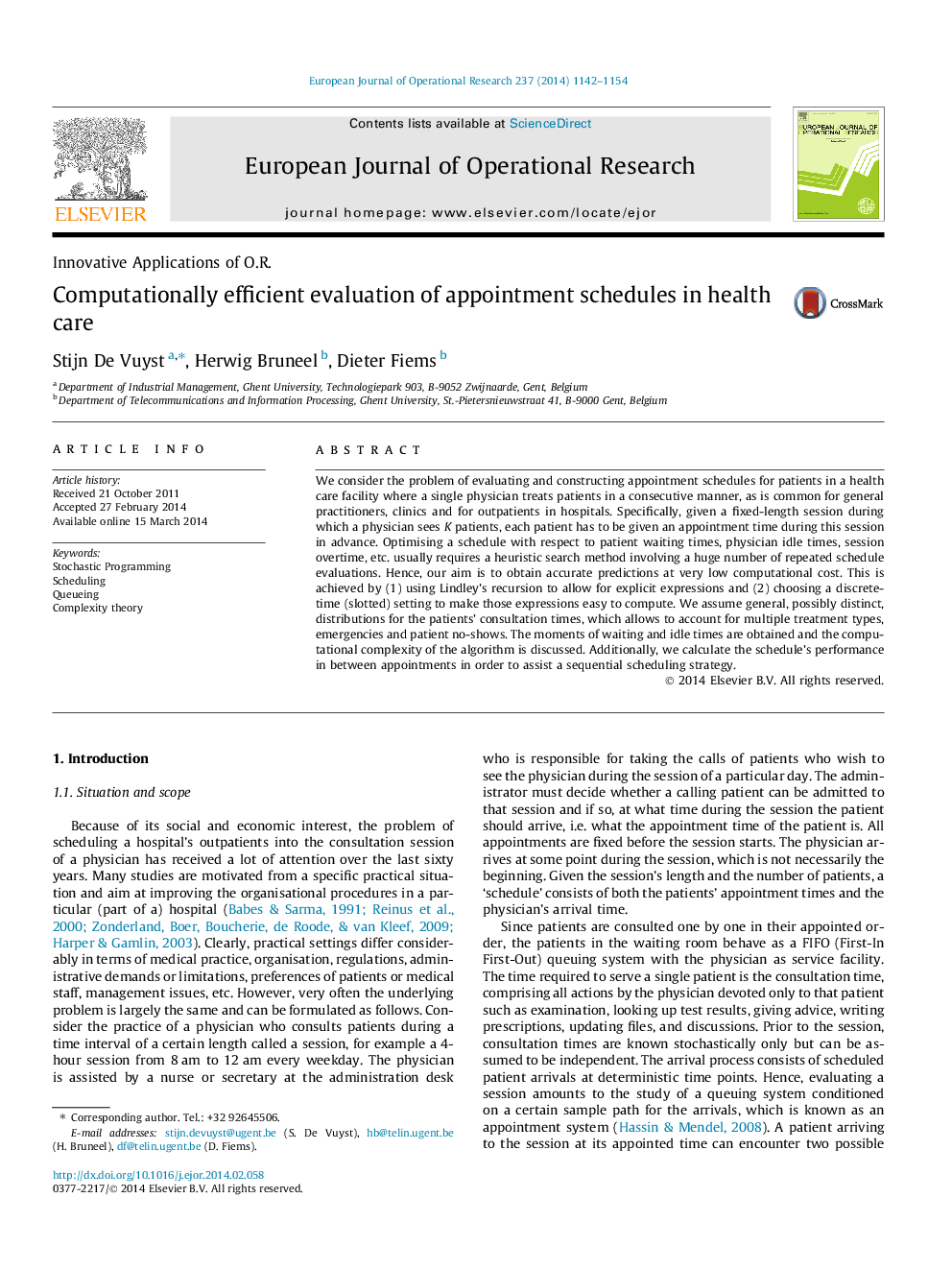| Article ID | Journal | Published Year | Pages | File Type |
|---|---|---|---|---|
| 479736 | European Journal of Operational Research | 2014 | 13 Pages |
•We consider the evaluation and construction of patient appointment schedules.•Efficient algorithm based on a discrete-time queueing model and Lindley’s recursion.•Exact moments of waiting and idle times using only a finite set of probabilities.•Outperforms simulation, ideal for optimisation and real-time scheduling applications.•Visualisation of schedule’s performance between already fixed appointments.
We consider the problem of evaluating and constructing appointment schedules for patients in a health care facility where a single physician treats patients in a consecutive manner, as is common for general practitioners, clinics and for outpatients in hospitals. Specifically, given a fixed-length session during which a physician sees K patients, each patient has to be given an appointment time during this session in advance. Optimising a schedule with respect to patient waiting times, physician idle times, session overtime, etc. usually requires a heuristic search method involving a huge number of repeated schedule evaluations. Hence, our aim is to obtain accurate predictions at very low computational cost. This is achieved by (1) using Lindley’s recursion to allow for explicit expressions and (2) choosing a discrete-time (slotted) setting to make those expressions easy to compute. We assume general, possibly distinct, distributions for the patients’ consultation times, which allows to account for multiple treatment types, emergencies and patient no-shows. The moments of waiting and idle times are obtained and the computational complexity of the algorithm is discussed. Additionally, we calculate the schedule’s performance in between appointments in order to assist a sequential scheduling strategy.
